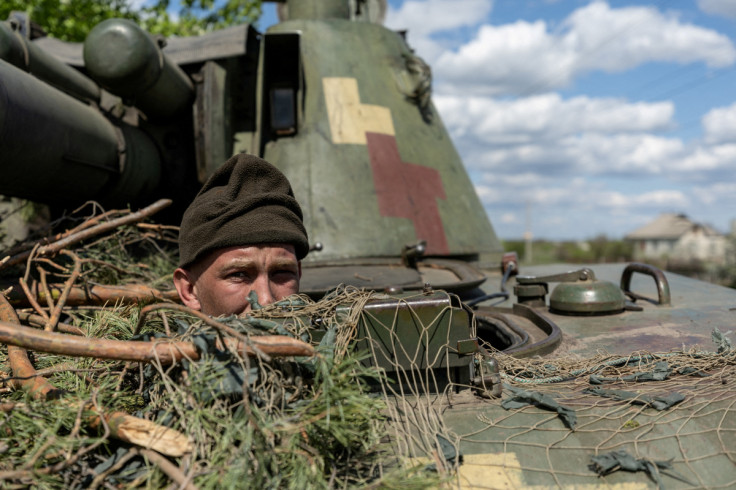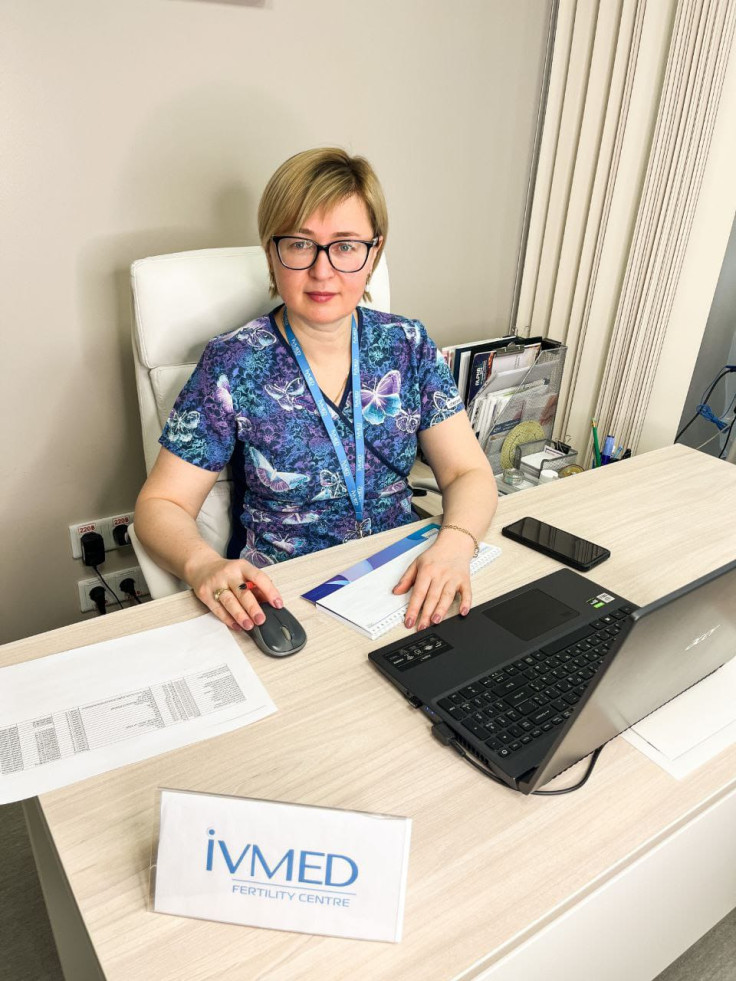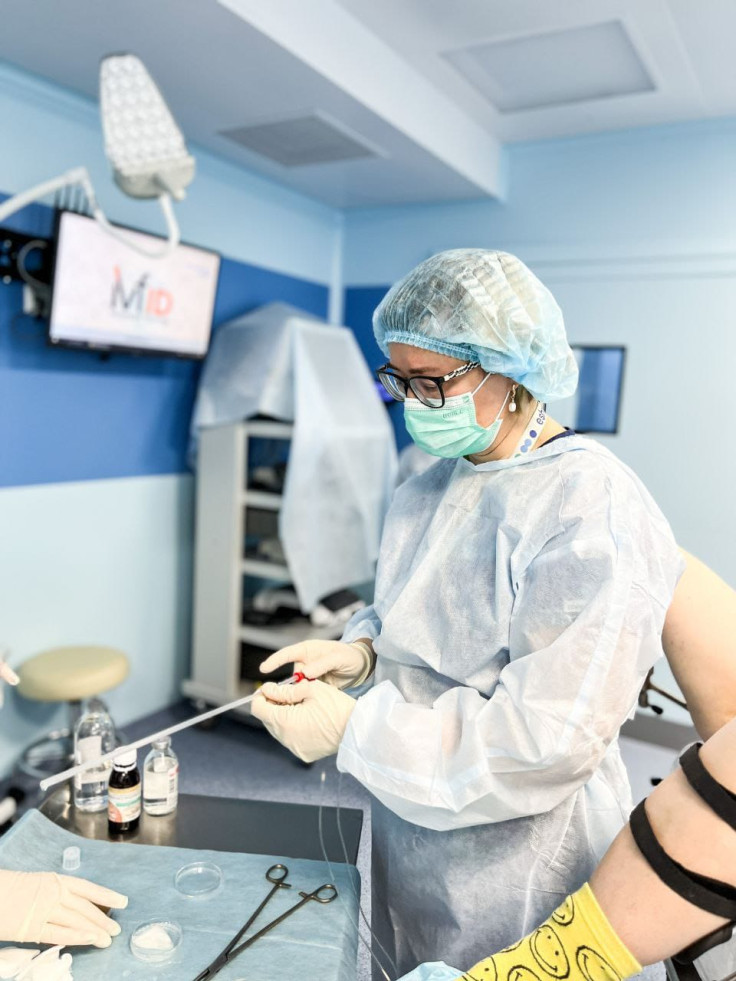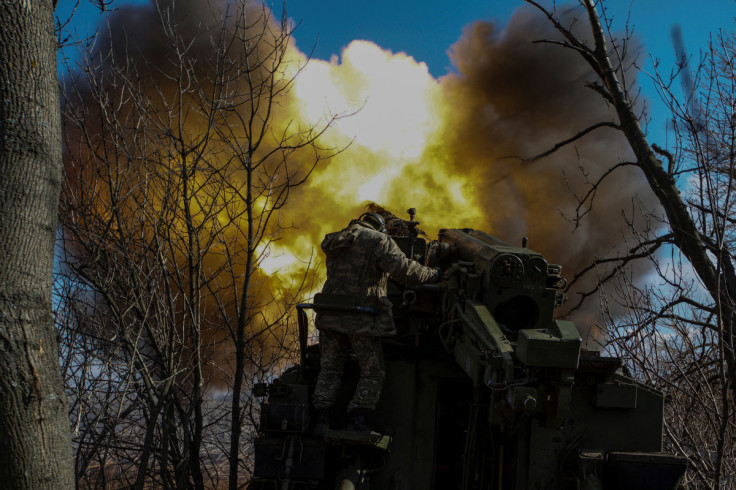Ukraine Fertility Clinic Offers Soldiers Free Sperm Freezing To 'Live A Normal Life' After War

KEY POINTS
- Semen freezing allows soldiers who sustain detrimental genital injuries to still have kids after the war
- Ukrainian soldiers may also face hypothermia or overheating while serving in the frontline
- The service is available to Ukrainian military personnel and couples serving in the army
With its war against Russia extending into its 13th month, and with seemingly no end in sight, Ukrainian soldiers are now considering semen cryopreservation — the process of freezing sperm or eggs — in case they do not return home.
IVMED, a fertility clinic in the capital city of Kyiv, is offering sperm-freezing services to Ukrainian soldiers on the frontline to help ensure their legacy if they are killed in combat or are afflicted with diseases that may hinder them from reproducing. It also helps Ukrainian soldiers who sustain genital injuries in the war to continue having families, said its chief doctor Galino Strelko in an interview with International Business Times.
"We started offering this service to soldiers before they go to the frontline and also to couples where the husband is in the military," Strelko said.
"We understand that there is a possibility to have an injury, especially in the zone of sexual organs. Infertility [among soldiers], after they return to normal life, is also twice higher than the standard population. They can have some diseases...as well as psychological problems."

Genital injury is one of the dreaded war wounds among military personnel. A 2017 report by military researchers in The Journal of Urology found that, among U.S. soldiers, 1,367 men suffered injuries to their genitals or urinary tract in Iraq or Afghanistan from 2001 to 2013. More than a third of the injuries were severe.
The report also found that 94% of the wounded men were aged 35 or younger, in "their peak years of sexual development and reproductive potential."
It is unclear how many Ukrainian soldiers have suffered from genital injuries in the war. However, Russia's continuous bombardment of the Eastern European country has resulted in severe injuries to Ukrainian troops, including possible genitourinary trauma.
President Vladimir Putin's forces have been pushing their advance on the eastern city of Bakhmut in Donetsk Oblast. Heavy shelling and attacks in the area are believed to have produced massive troop losses on both sides, but neither Russia nor Ukraine is saying how many have died within their ranks since Moscow invaded in February of last year.
Apart from genital injuries, Ukrainian forces may also face physical exhaustion, overheating and hypothermia, all of which can have detrimental side effects on the reproductive system. Despite suffering from war-related ailments, Strelko said IVMED's treatments can help soldiers live a normal life after service.
"We are offering semen freezing to help soldiers live a normal life," she noted.
"When they return and have some health problems, it may help them to have their own biological children. For some people, it may even offer psychological support because they understand that they can have children even in case of death. For military people, it is important to understand that."
How does cryopreservation work?
Prior to the procedure, patients will be asked to give blood to screen them for sexually transmitted infections (STIs). When clear, they will be asked to abstain from sexual activities for two to three days, allowing the sperm to be frozen when it is freshest, according to Healthline.
Generally, three to six specimens will be collected for each desired pregnancy. However, the number of samples needed will depend on the quality of the sperm.
Sperm banking has been one of the most successful ways to preserve fertility.

Semen banking and IVF treatments for free
IVMED, which is waiving the $35 cost for semen cryopreservation for Ukrainian troops, began offering the service to members of the army in 2013.
The service, however, was temporarily suspended after the Russian army stormed Kyiv in the early months of the war. The clinic temporarily moved to Lviv but reopened in the capital city by the end of April, after the Russian army retreated from the area.
"At the beginning of the conflict, in February, we finished all our activities because it wasn't possible to stay in Kyiv. It was terrible -- rockets and missiles every day, every hour. No electricity. No normal conditions," Strelko shared. The clinic is now seeing an average of five to six soldiers per week.
The service is also not limited to male soldiers. IVMED is also offering cryopreservation and IVF treatments to couples who are both serving in the military. The cost, which is more expensive than semen banking, is still covered by the clinic.
"We are also offering IVF treatment for free if the man and woman [are] both in the army. This is expensive, but also we do not have a huge number of people [coming in for the treatment], so until now we have been able to cover the cost," Strelko explained.
The doctor noted that state-funded semen cryopreservation may also soon become available to law enforcement officers and secret service members. That bill, which was first introduced in 2022, is still being discussed in the Ukrainian parliament.
"It will take time for sure, but I hope one day it will be passed," she said.
How the war has affected Ukrainian families
Prior to the war, the birth rate in Ukraine has been declining, with families having fewer and fewer children since the early 1990s. In fact, Ukraine's population, which was at 52 million in the 90s, had declined to 45 million by 2014, per the Population Reference Bureau (PRB).
At the time, the declining birth rate was attributed to a number of factors, including economic uncertainty following the break up of the Soviet Union.
In line with the country's declining birth rate, the United Nations predicted that Ukraine would lose a fifth of its population by 2050, a forecasting analysis published in The Lancet in October 2020 noted.
To keep the population steady, the World Resources Institute said it is necessary to have an average of 2.1 babies per family. The fertility rate in Ukraine, however, dropped to 1.16 in January 2021, national statistics showed. Ukrainian demographers are projecting the country's fertility rate could fall to as low as 0.55 in 2023 due to the war.
Apart from Ukraine's declining birth rate, around 8.1 million people have also been displaced from the country into Europe as of February 2023. Additionally, it is estimated that over 19 million have fled Ukraine since Russia launched its full-scale invasion on Feb. 24, 2022, though more than 10.6 million have returned to the country since then, per the Center for Research & Analysis of Migration (CReAM).
On that note, sperm cryopreservation alone cannot solve Ukraine's problem on demographics, said Strelko, adding that it could only help increase the country's birth rate by about 0.5% to 1%. However, the effects it has on Ukrainian soldiers' psyche during the war and the quality of life post-war are immeasurable.
"So from this point of view, no [it can't help increase birth rates]; but in the point of view that every pregnancy is important, yes," she added.

© Copyright IBTimes 2024. All rights reserved.





















